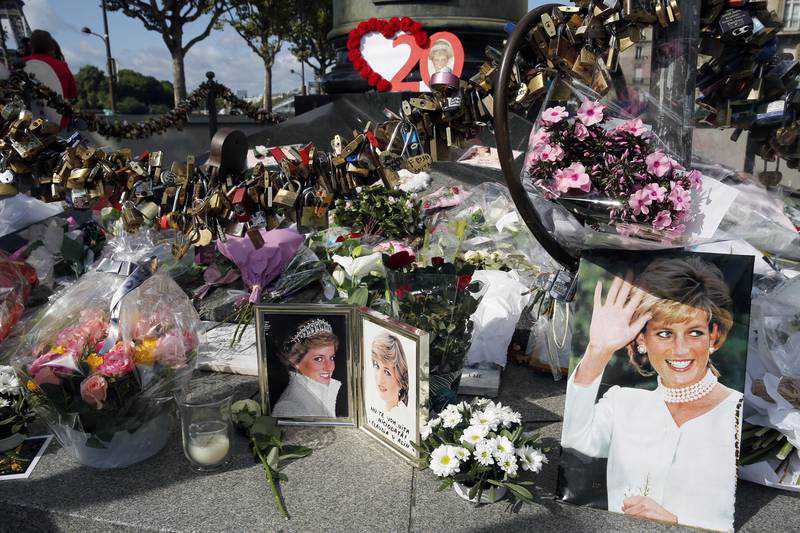UK Commons Speaker was told not to reignite Diana conspiracy theories
30 December, 2021

Downing Street scrambled to quash conspiracy theories that the UK’s intelligence services played a role in the 1997 car crash that killed Diana, Princess of Wales, and her boyfriend Dodi Fayed, newly-published government papers show.
Nearly a year after the fatal accident in Paris, a senior Foreign Office official drafted a letter for Prime Minister Tony Blair that was intended to be “definitive and dismissive” of questions by a senior MP about the possible involvement of British agents.
The MP, Lindsay Hoyle, now the high-profile Speaker of the lower house with responsibility for keeping order in parliament, was described as a “publicity-mad loony” during discussions between officials, as they tried to avoid reigniting a fresh round of speculation about the crash.
The speculation was in part prompted by Dodi Fayed’s father, Mohamed Al Fayed, the former owner of Harrods, who had claimed earlier in 1998 that he was “99.9 per cent” certain that the crash was not an accident.
In claims that were later discredited, he alleged that the pair had been “murdered” on the orders of senior members of the royal family because they were about to get engaged and Diana was pregnant with his son’s child. The former Harrods boss said that the British establishment could not accept an Egyptian Muslim as a stepfather to a possible future king.
Details of the discussions emerged in the latest release by the UK’s National Archives of papers written by members of the inner circle of Tony Blair’s government during the early years of his premiership, covering the period from 1998 to 2000.
The memo, written 10 months after Diana died, was just the latest effort by authorities to quell conspiracies about the crash caused when the princess’s drunken driver, Henri Paul, crashed in a tunnel while pursued by paparazzi on motorbikes.
Some of the theories were picked up by Mr Hoyle, who sought to ask in parliament if any British intelligence agents had been on duty in Paris on the night that Diana died.
Mr Hoyle followed it up in June 1998, saying his questions had been refused on national security reasons and he pressed the prime minister to respond, to put to bed the rumours of any MI6 involvement.
In his memo, senior foreign office official John Gaunt said that the ministry would prefer to send nothing in writing in case the letter was passed to the media, encouraging them to “recycle all the conspiracy theories of linkage between the Agencies and the accident”.
But the draft, cleared by the security agencies, Buckingham Palace and the UK’s Paris embassy that was liaising with the French investigation into the crash, said: “Any suggestion that any British official organisation or department had anything to do with this tragic event is both ridiculous and deeply distressing for the bereaved families”.
The letter, agreed and signed by Mr Blair, was sent to Mr Hoyle in July but Downing Street raised new concerns about reigniting conspiracy theories after a tip-off the following month that a rogue former MI6 employee would tell French investigators of his suspicions that agents were involved in her death.
The head of Paris police, Philippe Massoni, told the UK’s ambassador to France, Michael Jay, that the former agent would allege that Mr Paul and one of the chasing paparazzi were MI6 officers.
Mr Massoni said that they both knew that the allegations were “pure silliness” and that the former agent, Richard Tomlinson, was “mad”, but feared that he would talk to the media after giving his evidence. Mr Tomlinson was sacked from the service in 1995 and later jailed after breaching official secrets by writing a book about his time in the service.
“We suggest that the line, if asked, should be something like ‘We are now entering the realm of pure fantasy’,” the diplomat said, in his cable to the Foreign Office in London.
Conspiracy theories had emerged in the immediate aftermath of Diana’s death, most notably fostered by late Libyan dictator Muammar Qaddafi who claimed that French and UK intelligence were behind the crash, according to a Foreign Office review of international reaction to her death.
“In Egypt, there were many messages of condolence but there, as in Libya and Jordan, some sections of the press fabricated conspiracy theories to account for the tragic accident,” said the report, which was written by a senior official.
“These, predictably, found their most obnoxious expression in Qaddafi’s accusation that British and French intelligence agencies had engineered an assassination. We have protested but Libyan sources were still playing on this theme after the funeral.”
The investigating magistrate Herve Stephan ruled out any role by the British security services in the deaths. He concluded in 1999 that Diana died because Mr Paul “was in a state of drunkenness” which prevented him from keeping control of his car at high speed.
Source: www.thenationalnews.com
